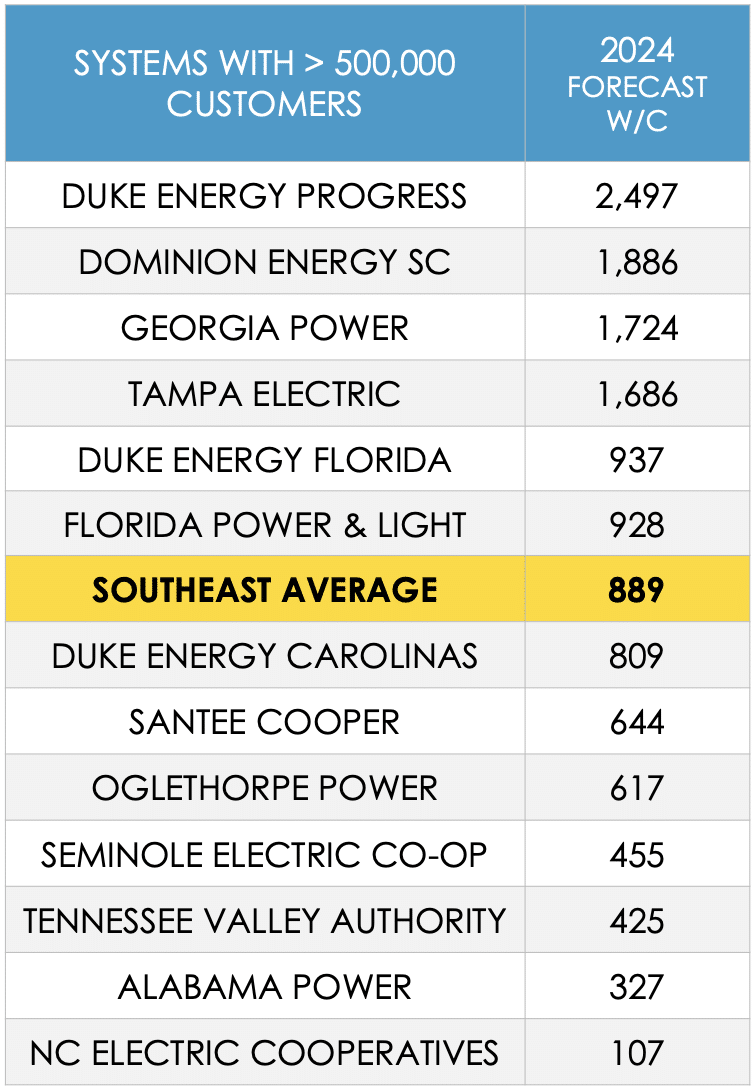A proposed solar + storage project in Tennessee exemplifies innovative models needed to meet climate goals, generate economic development, and create jobs. The nation’s largest public power company wants to block it from ever seeing the light of day.
Chris Carnevale | October 27, 2021 | Solar, Tennessee, UtilitiesA newly proposed solar + storage project in Jackson, Tennessee is offering a new model for how Tennessee businesses could access clean electricity from solar. As SACE wrote a couple of months ago, the project could be a win-win-win scenario that improves public health and offers economic growth opportunities, not only for the businesses that receive the solar power, but also the Jackson community as a whole. The new model could serve as an additional tool in the toolkit for rapidly advancing solar deployment, which is needed particularly in Tennessee as the Tennessee Valley Authority’s (TVA) solar development lags behind peer utilities in the region.
We at SACE are convinced that this is a project worthy of support. In order to articulate the significant benefits of this project, SACE recently submitted an amicus brief to the Tennessee Public Utility Commission offering our perspective on how the project could be a boon for TVA’s customers in the Jackson area, and at the same time help Tennessee hit necessary targets for reducing climate pollution.
Yet when the project developer approached the Public Utility Commission earlier this year in order to be able to move forward with the project, opposition was forthcoming from TVA, who urged the Commission to reject the project developer’s request, apparently seeking to halt or delay the project. TVA’s opposition to the solar + storage project appears to be consistent with their heavy-handed approach to blocking solar access to many customers. As we state in our amicus brief, by seeking to stop or delay the project, TVA is in effect denying the community the important beneficial impacts this project offers. TVA should drop their opposition and instead support this opportunity to improve the economy and public health in Tennessee communities.

SIGN THE PETITION TO SHOW YOUR SUPPORT FOR SOLAR & TELL TVA TO DROP THEIR OPPOSITION
Widely Expanding Solar Energy Is Critical To Hitting Climate Targets While Offering Massive Public Benefits
A recent authoritative report, widely regarded as a “code red” for climate action, tells us that the climate crisis is here and worsening, already harming communities with impacts like flood, fire, and extreme weather and that we must respond rapidly by reducing fossil fuel pollution through switching to clean energy. The Biden Administration is responding to the “code red” on climate by formally adopting pollution reduction goals in line with what the experts say is necessary to meet the moment, namely achieving an 80% clean electricity grid by 2030 and 100% clean electricity grid by 2035.
Expert study shows that achieving high penetrations of clean energy on the grid, like 80% clean electricity by 2030, would have far-reaching benefits for Americans in the form of hundreds of thousands of lives saved from reduced air pollution, $1-3 trillion in saved public health and environmental costs, 500,000-1,000,000 new jobs, hundreds of billions to trillions of dollars in investment while maintaining excellent grid reliability and energy affordability.
The growing consensus among experts is that the most cost-effective method for achieving this dramatic expansion of clean electricity is with energy efficiency and solar and wind energy, which are now often the least expensive forms of new power generation. The United States has already done a lot of lead work in getting to 100% clean electricity and is currently getting almost 40% of our electricity from zero-emissions sources, but in order to reach the necessary targets, clean energy sources will have to be built at roughly two to three times the rate they were last year.
The U.S. Department of Energy released a report last month, characterized as “the most comprehensive review to date of the potential role of solar in decarbonizing the U.S. electricity grid and broader energy system,” which showed that solar is poised to play the lead role in the decarbonization of the power grid while accruing major benefits to Americans:
“In 2020, about 80 gigawatts (GW) of solar, on an alternating-current basis, satisfied around 3% of U.S. electricity demand. By 2035, the decarbonization scenarios show cumulative solar deployment of 760–1,000 GW, serving 37%–42% of electricity demand, with the remainder met largely by other zero-carbon resources, including wind (36%), nuclear (11%–13%), hydroelectric (5%– 6%), and biopower/geothermal (1%).”
Reaping The Public Benefits Offered By Solar Requires More Tools In The Toolkit, Especially In Light of TVA’s Restrictive Solar Policies
To bring home the multifaceted benefits offered by getting to an 80% or 100% clean electricity grid, solar deployment will need to increase at several times the rate of current national installation trends. In order to do so, more tools are needed in the toolkit of clean energy build-out, and policies and innovations that encourage solar need to be adopted and embraced.
This is especially true in Tennessee, where TVA’s solar development lags behind the region. In SACE’s fourth annual “Solar in the Southeast” report, published this past June, we found TVA had just 105 watts of solar per customer in 2020, which is less than a quarter of the Southeast regional average of 423 solar watts per customer. Looking forward, TVA will make up some lost ground, but not nearly enough: we found that in 2024, TVA will have 425 solar watts per customer, which is less than half of the Southeast regional average of 889 solar watts per customer. SACE has also examined the pace of TVA’s carbon pollution reduction in their official resource plan; it will be past 2100 until TVA is 100% carbon-free if it continues on its current trajectory.

Nearly all of the expected solar on TVA’s system between 2020 and 2024 will be from utility-scale solar projects and will be procured exclusively on behalf of TVA’s largest customers: large corporations like Facebook and Google, and large utilities serving cities with clean energy goals that are not met with TVA’s fossil-fueled power, like Knoxville and Nashville.
SACE is strongly supportive of this solar deployment for large customers and hopes sincerely for much more of this type of development. At the same time, though, we also recognize the disparity between the access to solar that TVA provides its largest customers and what it provides to other customers such as residences, businesses, and even industrial customers for whom TVA’s current offerings don’t work. For these other customers, there are very limited options for accessing the benefits of solar due to TVA’s restrictive policies.
Proposed Solar Solar + Storage Project in Jackson Is An Example Of The Additional Tools We Need So The Public Can Reap The Benefits Of Solar
Tennessee’s lagging position in solar development shows that opportunities to help Tennesseans grow their local economies and protect the environment and public health are being left on the table. In order for Tennesseeans to more fully capture these opportunities, it is clear that new policies and innovations are necessary. In fact, the recent Department of Energy report cited in identifying opportunities to overcome barriers against fully reaping the benefits of solar for industrial power customers: “New business models will be required to aggregate, automate, and optimize the use of distributed building energy technologies, vehicles, and flexible industrial loads.”
The proposed solar + storage project in Jackson, TN is just such a new business model that offers a new path for businesses to access the benefits of solar.
The solar + storage facility would include solar panels, batteries, underground wiring to deliver the power to end-users, and advanced metering equipment that would help end users monitor and control energy use. The facility would not be connected to the power company’s lines, so would function the same as “behind-the-meter” solar. Since the facility would be completely storm hardened with all wiring underground, it will also provide power in the event of a power outage on the grid. The end users–a group of industrial businesses that would collectively make up a cooperative called the Jackson Sustainability Cooperative–would continue to receive most of their power from their local power company but would have supplementary solar power to lower their cost of energy at the times of day when electricity demand and power costs are at their highest.
Public Benefits Of The Solar + Storage Project Could Be Particularly Important For Jackson Residents
The project’s benefits to Jackson could include generating local economic development, job creation, educational opportunities in renewable energy, and a boost for the city’s tax base. The project developers estimate that ten-year economic impacts–both direct and indirect– would be $231 million, including millions of dollars in new local tax revenues as well as 678 full-time equivalent jobs in the construction period (of course some jobs would be for local people and some would be for others) and 22-28 permanent, full-time jobs thereafter. The increased tax revenue could fund community priorities like schools, libraries, community centers, emergency services, or programs. Moreover, the project would bring educational and career development opportunities, as the development team plans to have an internship program and partner with local schools.

These economic development and workforce development opportunities could be particularly important for a community such as Jackson, where many residents face financial hardships. According to the United Way of Tennessee, one in three people living in Jackson’s 38301 zip code– even before the COVID pandemic –lives in poverty and the wages of nearly half of Jackson residents are not living wages, barely covering basic necessities. The part of Jackson where the project is proposed has been recognized by leadership in Jackson as an area that has been particularly underinvested in and would benefit from economic opportunities such as the Jackson solar + storage project, which would invest in local neighborhood infrastructure, provide local jobs, contribute tax revenue, and bolster the local major employers who receive the power from the co-op.
Bottom Line: TVA Should Drop Its Opposition To The Project And Stop Putting Itself Further Out Of Alignment With Public Interest And The Biden Administration
TVA’s opposition to this innovative solar project puts TVA squarely out of alignment with public interest and comes as a stark contrast to the national clean energy goals of the Biden Administration, which is seeking to expand and grow the ways that Americans can go solar on the path to 100% clean electricity by 2035. Even more concerning is that while TVA seeks to block the solar + storage project from ever seeing the light of day, they are continuing their trend of largely blocking Tennesseans from accessing the benefits of solar, while life-saving public health improvements, cost savings, job creation, and economic development are on the line.
TVA, as the nation’s largest public power utility and an extension of the federal administration, should be helping make this project a reality, not pulling out the stops to actively fight it. TVA’s historical legacy is as an engine of economic opportunity for Tennessee Valley residents by harnessing the power of clean energy. By blocking economic opportunities presented by clean energy, as is demonstrated by their opposition to this project, even as they plan large, polluting gas power plants and pipelines that could burden Tennesseans with pollution and significant risks, they are straying further and further from that original mission
TVA should drop its opposition to the Jackson solar + storage facility and instead work together to make it a reality so that Tennesseeans can benefit.
SIGN THE PETITION TO SHOW YOUR SUPPORT FOR SOLAR & TELL TVA TO DROP THEIR OPPOSITION